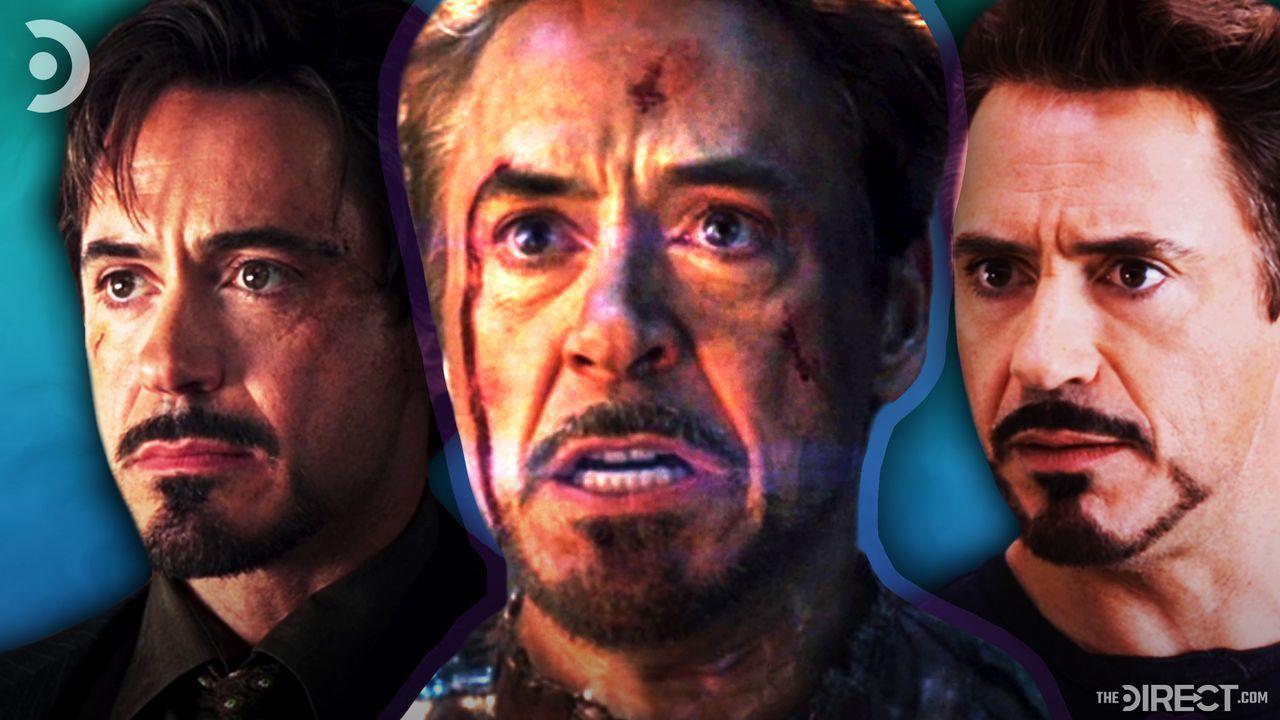
Tony Stark has been on the longest journey of any character in the Marvel Cinematic Universe to date, starting all the way back in 2008's Iron Man , the first installment of the MCU, and ending in Avengers: Endgame , although his impact is and will surely continue to be present in movies beyond the fourth Avengers film. Throughout his time in the MCU, much of Tony’s heroism as Iron Man and beyond stems from a desire to right the wrongs, both his own and those of others, so it’s fitting that his first appearance focuses on his realization of the negative impact he’s had on the world while his last showing shows fans on how he changed so much for the better. Here are 20 quotes that highlight this complex, long-running character arc now that Downey Jr.'s MCU run has come to an end...
1. “I never got to say goodbye to my father. There's questions I would've asked him. I would've asked him how he felt about what his company did, if he was conflicted, if he ever had doubts. Or maybe he was every inch of man we remember from the newsreels. I saw young Americans killed by the very weapons I created to defend them and protect them. And I saw that I had become part of a system that is comfortable with zero-accountability.” ( Iron Man )

At the beginning of Iron Man , Tony Stark is a weapons dealer who doesn’t have full awareness of how his products are being used. But seeing this use (or misuse) if his weapons firsthand fundamentally changes his worldview forever. Tony wasn’t the one who started the original system of Stark Industries; his father was the one who founded the company. But Howard Stark isn’t around anymore, and, as we learn later on in the series, the tough questions Tony desires to ask him go beyond the ones mentioned here and to a more personal level of discomfort. So Tony takes the responsibility upon himself to make change for the better, and sets out to do so immediately.
Becoming Iron Man is obviously the most prominent example of this character evolution in the film, but changing the output of Stark Industries is another very important part of Tony’s newfound sense of responsibility and accountability that should not be overlooked.
2. “The truth is...I am Iron Man.” ( Iron Man )
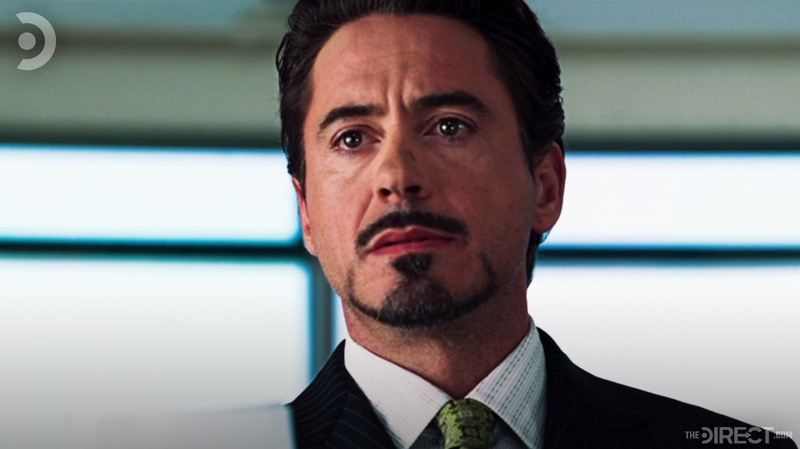
Coming clean to the world about his identity as Iron Man was a big decision for Tony, since being a superhero was still something new for him, and this announcement meant there was no turning back. He is visibly nervous during the speech and after the big reveal, which provides a nice juxtaposition for instances down the line when he utters this line again. It leads the way for him to grow into his identity as a hero and has define what being Iron Man truly means for him.
3. “I am Iron Man. The suit and I are one. To turn over the Iron Man suit would be to turn over myself, which is tantamount to indentured servitude or prostitution, depending on what state you're in.” ( Iron Man 2 )
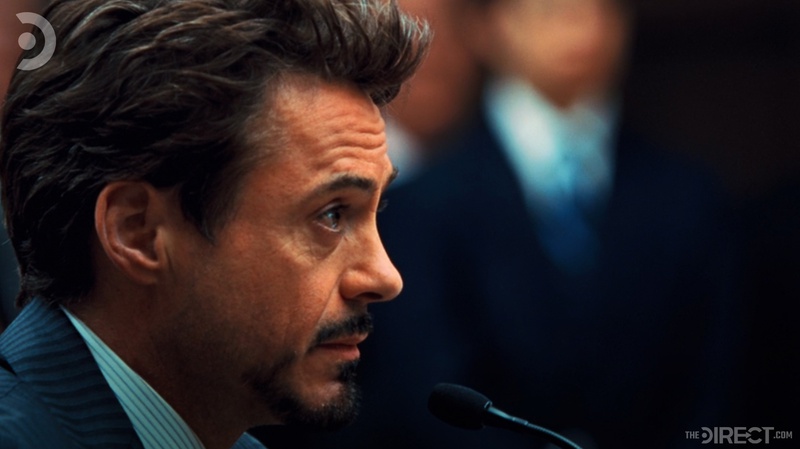
Unlike many of the other heroes who would later join him in protecting and avenging the universe, Tony wasn’t born with superpowers and didn’t acquire them in an accident or experiment; he engineers all his Iron Man suits (and even those of some others) and the powers that they allow him to use with his own two hands. Since the suits are all self-made and personalized, they represent Tony not only as a superhero, but as the innovator he has been since long before building Mark I. Therefore, it only makes sense that Tony sees them as an extension of himself.
In Iron Man 2 , he speaks of this in the sense of not wanting to lose access to his creations, but this statement does pop up again in the future, no longer tied specifically to the suits, but to Tony’s identity as someone who is dedicated to protecting and improving the world, armor or no armor.
4. “There's no throne, there is no version of this, where you come out on top. Maybe your army comes and maybe it's too much for us, but it's all on you. Because if we can't protect the Earth, you can be damned well sure we'll avenge it." ( The Avengers )

Tony’s main mindset as a hero and innovator is a focus on the future, both in the sense of how to improve matters and how to prevent bad things from happening. But if need be, of course he’s willing to go the route of fixing things after the fact. Tony’s tendency to think ahead also lends his mind to never giving up, and here he tells Loki straight-on that he and the rest of the team will ardently refuse to do so until he is defeated, displaying a cool-headed sense of confidence that they’ll succeed as he tells him.
5. I build neat stuff, got a great girl, occasionally save the world. So why can’t I sleep? ( Iron Man 3 tr ailer)

Tony Stark shows us all that it doesn’t matter how much you have going for you in life - Everyone deals with their own personal demons. Some people have seemingly everything they could ever want in life...and become surprised to find that they’re struggling with these issues. Tony is always trying to find a rational, logical solution to every problem he comes across, so his own mind not being at peace despite so many things in his life going well is a conundrum that confuses and frustrates him throughout Iron Man 3.
6. "Check the heart, check the, check the, is it the brain?"
"No sign of cardiac anomaly or unusual brain activity."
"Okay, so I was poisoned?"
"My diagnosis is that you've experienced a severe anxiety attack."
"Me?" ( Iron Man 3 )
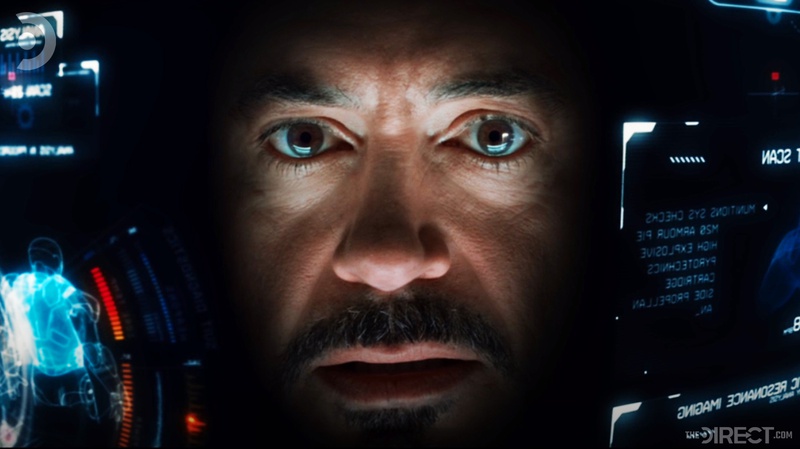
Marvel Studios took the story of Iron Man 3 several places that audiences didn’t expect it to go. One that is often overlooked is the mental health storyline; the movie gives us a peek at the effects that being a superhero and experiencing heavy danger and trauma can have on someone’s mental state.
Tony’s near-death experience during the Battle of New York in The Avengers has left him dealing with what seems to be PTSD and anxiety; the memories of the past haunt him and creep up on him when he least expects them to - like when looking at a young fan’s drawing - and have him obsessively worrying about the future. These are perfectly understandable effects this unique line of work can have on a person, but they’re not something we often see depicted in superhero stories. In fact, we don’t often see these kinds of mental health issues discussed in very many mainstream movies in general, so the inclusion of such here is a pretty big deal.
Again, we also see how hard it can be for someone to reconcile the fact that they’re facing this sort of issue with how they see themselves; Tony thinks he should have everything all together since his life is going well, at least on the surface, so when J.A.R.V.I.S. informs him of what happened in the restaurant, it’s difficult for him to accept.
7. "You experience things and then they're over, and you still can't explain them? Gods, aliens, other dimensions? I'm just a man in a can. The only reason I haven't cracked up is probably because you moved in, which is great. I love you. I'm lucky, but honey, I can't sleep. You go to bed, I come down here. I do what I know. I tinker. Threat is imminent and I have to protect the one thing I can't live without. That's you." ( Iron Man 3 )

Even as Tony is beginning to recognize and understand his demons, others around him still don’t. Tony is trying to protect Pepper from harm, but he’s inadvertently hurting her in another way; his obsession with doing so much is detrimental to their relationship. Iron Man 3 does a good job of showing both points of view; that of the person dealing with anxiety and intrusive thoughts as well as that of a loved one trying to understand. By the end of the movie, both of these two are putting more effort into their relationship, Tony in communicating his feelings and trying to let go, and Pepper in attempting to understand his mindset.
8. “What's your name?”
“Harley. And you're…”
“The mechanic. Tony.” (
Iron Man 3
)
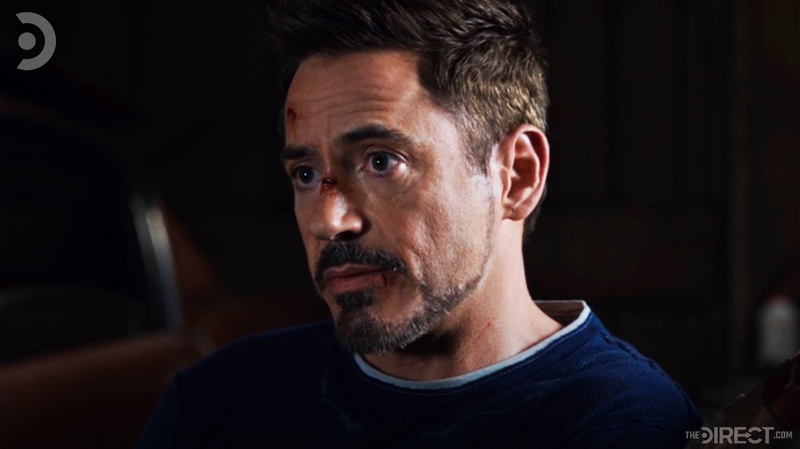
In Iron Man 3 , we get relatively few scenes of Tony “suited up” as Iron Man, which allow us to see more of his heroics outside the armor. His introduction to Harley Keener as “the mechanic” (a nickname which he later uses in a note to him at the end of the movie) is yet another reminder of his roots and core, as an innovator. This part of his character is one we’re quite familiar with by this point in the franchise, but it’s a nice reminder of who Tony Stark is at his core.
This movie sets up a lot of things for the rest of Tony’s MCU story; his time with Harley is the first time we get to see him form a meaningful relationship with a kid. Even though Tony also makes it clear in this film he is wary about being a mentor - let alone a parent - at this point, the ground-level investigative and engineering work he does with Harley - including providing him with his own equipment - plants the seeds for a shift to a method of improving the world we see more of from him in Phase 3: making sure the next generation is ready to continue the work, and have the tools to do so.
9.
"
This
is the next thing, Tony. Your clunky metal suits are gonna be left in the dust."
"That is exactly the plan." (
Avengers: Age of Ultron
)

While Tony Stark is undoubtedly one of the MCU’s leaders in scientific innovation, he’s far from the only person making technological breakthroughs. Something that's understated in the films but integral to his character nonetheless is that, unlike some others at his level in their field, Tony is primarily motivated not by accolades, but by the work itself and what it can do for the world.
When Doctor Helen Cho insinuates that the tissue-creating breakthroughs being used to heal Clint Barton after a mission are going to eclipse technology like the Iron Man suits, Tony doesn’t get defensive but expresses his hope that time will prove her right. It’s a small exchange, but a nice reminder of his core values and that while some of the methods to Tony’s madness may seem outlandish, the intentions behind them are always for the best.
10. "I watched my friends die. You'd think that'd be as bad as it gets, right? Nope. It wasn't the worst part."
"The worst part... is that you didn't."
(
Avengers: Age of Ultron
)
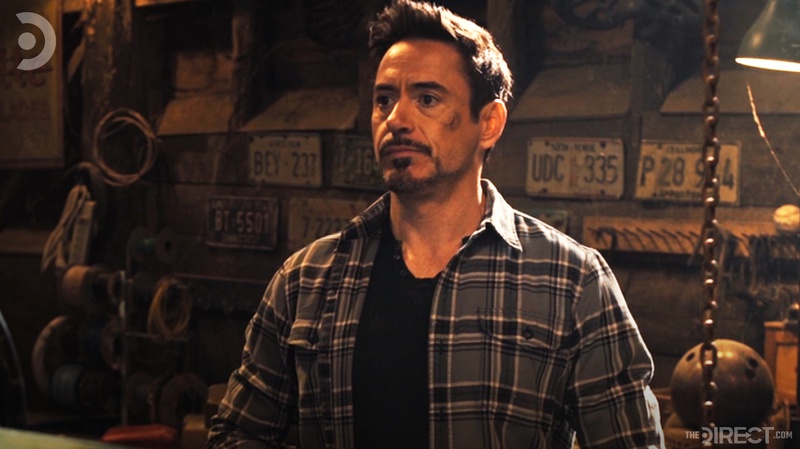
Avengers: Age of Ultron exposes the greatest fears and regrets of the Avengers. By this point in the franchise, we already know Tony has dealt with trauma from his heroics, but this film shows us what he is trying to prevent in a more concrete manner. He had a near-death experience in The Avengers , and it seemed his trauma stemmed from not wanting a repeat of that. But the vision Wanda gives him in Age of Ultron shows what his fear - and main motivation for his attempts at preventing more attacks - truly stems from.
Tony knows what it’s like to have a brush with death, but he doesn’t fear experiencing that again to keep everyone he knows and love safe and to avoid the guilt he would feel of knowing he could have prevented it. This is the catalyst for every action of Tony’s throughout the rest of the MCU, and being able to view all of them through this lens makes us able to understand and sympathize with him in a way the other characters don’t. (Well, other than Nick Fury, who proves here he has a crystal clear understanding of where Tony is coming from.)
11. “When I realized what my weapons were capable of in the wrong hands, I shut it down and stopped manufacturing." ( Captain America: Civil War )

This callback to the events of Iron Man reflect how Tony’s mission has changed since those days; back then he was willing to switch his company’s type of output pretty much immediately, but still wanted to be in charge of things. But since then, he’s handed over control of Stark Industries to Pepper Potts and has even tried to take a sort of step back in terms of hero-dom, trying to find something better than himself to keep everyone safe and being willing to let others take the lead in innovation. This isn’t out of laziness, but rather the recognition that certain things are better off handled by people other than himself.
Whether you agree with Tony’s position on the Sokovia Accords or not, his openness to yielding some of his power to the United Nations and working with them to defend the world shows character growth from him.
12.
"I'm sorry, Tony. If I see a situation pointed south, I can't ignore it. Sometimes I wish I could."
"No you don't." (
Captain America: Civil War
)
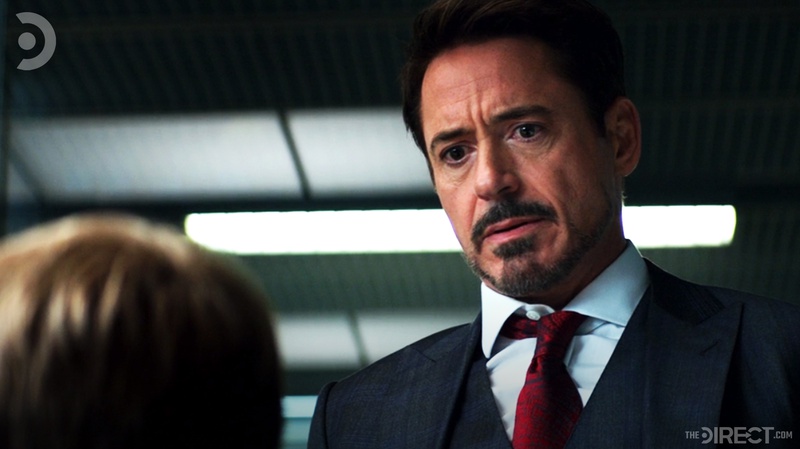
When Tony and Steve first met in The Avengers , they definitely didn’t see eye to eye. But by Captain America: Civil War , they not only know each other much better, they seem to have rubbed off on each other. This conversation is a subtle but prime example of how the latter has affected the forme. Now, Tony doesn’t just know about Cap’s mindset of not wanting to turn a blind eye towards injustice, he strongly empathizes with it, and now is just as stubborn as he is when it comes to his heroics. These two may be in conflict for most of this movie because of their differing views on how to protect the world, but that’s only because of the passion both of them have for doing so.
13. "Listen, I know that school sucks. I know that you want to save the world. But you're not ready yet." ( Spider-Man: Homecoming trailer)
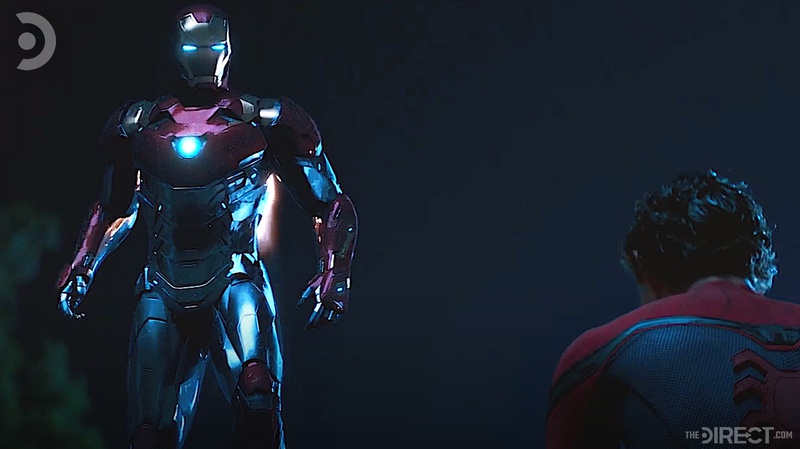
It’s clear from the get-go that one of the reasons Tony takes it upon himself to help Peter Parker out is because he sees a lot of himself in the high-schooler. And that goes beyond their comparatively scientific minds; Tony has always felt a drive to make a splash in the world, even before he was truly equipped to do so. Now, he sees the same antsy yearning in Peter, but Tony has been around long enough to know that he wasn’t as prepared as he thought he was at Peter’s age, and neither is his young mentee.
This also reflects a shift we see in Tony from Phase 1 to the subsequent two phases; in his first few MCU appearances, Tony is eager to take control of things and believes he knows what’s best for everyone. But after the Battle of New York, he becomes less sure of himself and wants to put something in place to keep the universe safe, something completely capable of doing so. Even though these plans tend to fall through, it’s obvious that by this point Tony has become more cautious in his methods, and wants to instill the same kind of values of things like education into his protege.
14. "If you're nothing without this suit, then you shouldn't have it, okay? God, I sound like my dad.” ( Spider-Man: Homecoming )
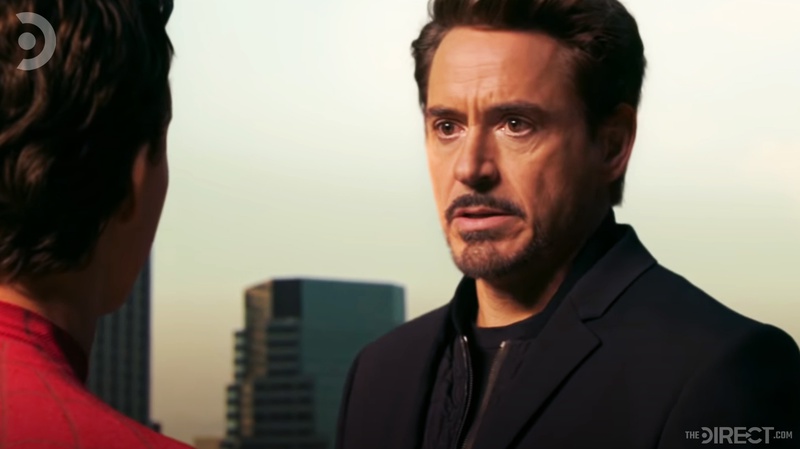
Tony develops an increasingly large sense of responsibility for Peter Parker, especially in regards to his heroics, throughout Spider-Man: Homecoming . At first, Tony doesn’t even show up in person to help bail Peter out of his problems, but towards the end of the film he surprises his mentee by doing so and giving him a stern talking to.
The reason Tony has always been hesitant to take this kind of responsibility on is actually also the reason he wants to do so for Peter: his own father was cold and sometimes downright neglectful of him, and he doesn’t want younger generations to have to go through the same thing. We see here that Tony is trying to navigate the space of breaking the cycle of bad parenting without crossing over into repeating the mistakes of his own dad. But it’s clear he’s doing a good job of it, as he shows more care for Peter than Howard ever did for him.
15. “You know me?”
“I do. You’re not the only one cursed with knowledge.”
“My only curse is you.” (
Avengers: Infinity War
)
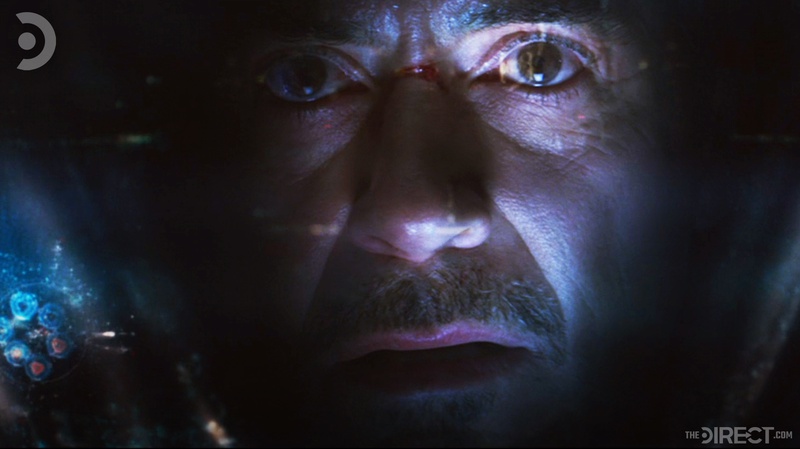
It may be inspiring to see Tony face so many of his longtime fears in Avengers: Infinity War , from blasting off into space without knowing if he’d ever return to Earth to Peter having put himself in such a dangerous situation alongside him, but it becomes tough to watch when he finally comes face-to-face with his greatest fear of all: Thanos. The villain is the one who has been “living in his head” for years, and we have to watch Tony nearly get destroyed by the Mad Titan twice.
First comes this scene, in which the embodiment of Tony’s anxiety quite literally nearly destroys him. But it’s important to note that Tony remains stoic here, even in the face of Thanos. Tony’s not afraid to die at the hands of Thanos to save others; the “curse” he’s referring to here is his vision of the opposite scenario, one which he ends up having to face later on in the movie.
16. “I needed you, as in past tense. That trumps what you need. It's too late, buddy. Sorry. [...] What we needed was a suit of armor around the world! Remember that? Whether it impacted our precious freedoms or not, that's what we needed! [...] I said we'd lose. You said, "we'll do that together too." Guess what, Cap? We lost, and you weren't there. But that's what we do, right? Our best work after the fact? We're the A-vengers? Not the Pre-vengers, right?” ( Avengers: Endgame )
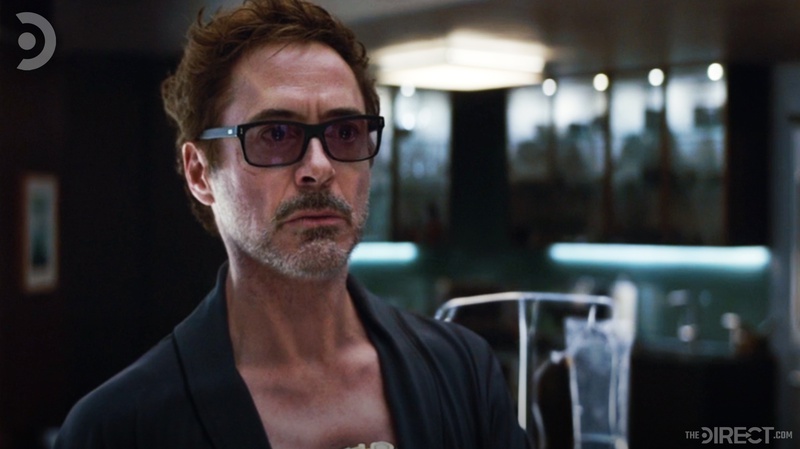
This scene in Avengers: Endgame is another one that’s hard to watch, but it’s also satisfying and important.
At the end of Captain America: Civil War, we hear a voiceover of the letter Steve sends to Tony, giving us a peek into his mindset after the fallout of the Avengers. But while Spider-Man: Homecoming let's us know Tony is still working on gear for Cap and some of the other heroes and Avengers: Infinity War gives us a glimpse at Tony feeling conflicted over whether or not to contact his former teammate, we don’t actually get to see him address Cap post-Siberia fight until Endgame . And it happens right after he returns to Earth after having to face his greatest fears in space and nearly dying in unfamiliar territory.
Captain America isn’t often called out for his misdoings, so while it may seem harsh for someone to call him out for breaking his word during a time when the entire universe is grieving, it’s a desperately needed wake-up call for him and the others who left Tony on his own after the team’s fallout. It’s also nice to see Steve simply listen to Tony for once and recognize his mental state isn’t the best after being fairly ignorant of it in the past. Tony is at his lowest point physically and arguably mentally here, and it’s just hitting the Avengers that it’s because they dismissed his warnings of what was to come...and now half the universe has paid for it. The least they can do is hear him out, even though it’s too late now and it seems all is lost.
17. We got a shot at getting these stones, but I gotta tell you my priorities: Bring back what we lost? I hope, yes. Keep what I got? I have to, at all costs. And...maybe not die trying will be nice. ( Avengers: Endgame )

This one demonstrates how dramatically Tony Stark’s priorities have shifted since the beginning of the first Iron Man movie. Back then, he was all about living the good life for himself, but his drive to protect and care for others has only grown bigger and bigger.
He was initially reluctant to attempt a time travel mission to save everyone, mainly due to lingering resentment of how his former teammates treated him (and really, he can’t be blamed for that too much considering how much mistrust and doubt they had in him for so long) and to maintain the family he built after the Decimation. But soon after turning them down, he made the decision to put the past aside and work with them for the sake of everyone else. He knows that succeeding in this mission not only means the return of those who lost their lives, but a better world for those left alive, including his own daughter. Of course, he doesn’t want to lose his own life in the process, but he adds that part on as an afterthought; it’s obvious his priority is making sure everyone else is safe and/or revived.
18. “I thought my dad was tough on me. And now, looking back, I just remember the good stuff, you know. He did drop the odd pearl.”
“Yeah? Like what?”
"’No amount of money ever bought a second of time.’" (
Avengers: Endgame
)
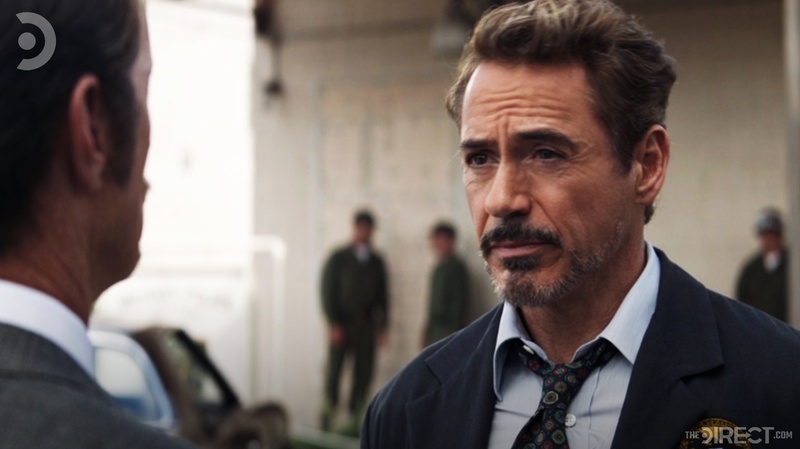
Several members of the Time Heist team encounter significant people of their past during the mission. For Nebula it’s her past self, for Thor it’s his mother, and for Tony it’s his father. Both Tony and Thor have regrets with the people they meet in the past, seeing as neither got to say goodbye to them before they died. But while Thor is at his lowest point mentally, Tony is at his highest, and this dictates their respective interactions with their loved ones; Thor takes advice from his mom, while Tony gives it to his dad.
In earlier movies, Tony brings up his desire to speak to his father again in order to get answers to questions about his morality in business affairs and why he treated his son the way he did. But by the time he actually does get the opportunity to find out about some of these things, he’s secure enough in himself and his own values that it really doesn’t matter anymore; he’s long since changed the mission and operations of Stark Industries and now has a child of his own. He now knows he doesn’t have to worry about repeating his father’s mistakes and continuing the toxic cycle children of so many families with absent parents get stuck in and so his anger and resentment towards Howard has been absolved.
Tony’s implied forgiveness of Howard doesn’t make the way he was treated okay, and his ability to make peace with his past and even find positivity in it in the form of a quote from his father (which it seems to be implied he’s applying it to his life in a different way than Howard did his) is more a reflection on Tony’s mental state in 2023 than a revelation of how his childhood was different than we’d been led to believe.
19.
“I am… inevitable.”
“And
I... am..... Iron Man.” (
Avengers: Endgame
)

This moment is the culmination of everything Tony’s story arc built up to.
We know Tony sees Iron Man as more than a suit - it’s an identity for him. So after seeing the meaning behind that identity grow and evolve for so long, hearing him confidently utter this iconic line as his final quip of sorts is immensely satisfying. But what might be even moreso is the fact that this scene is a direct reversal from the one in Avengers: Infinity War, which sees Thanos stab Tony and nearly kill him. This time, Tony is stable enough to take down the source of his long-lasting trauma instead of letting it take him down, as he almost did five years prior. He used to believe Iron Man wasn’t enough to defend the world and that it needed a suit of armor around it, but in the end he himself proved to be that very suit of armor the universe needed.
20. “Everybody wants a happy ending, right? But it doesn't always roll that way. Maybe this time. I'm hoping if you play this back, it's in celebration. I hope families are reunited, I hope we get it back, and something like a normal version of the planet has been restored. If there ever was such a thing. God, what a world. Universe, now. If you told me ten years ago that we weren't alone, let alone, you know, to this extent, I mean, I wouldn't have been surprised. But come on, you know? The epic forces of darkness and light that have come into play. And, for better or worse, that's the reality Morgan's gonna have to find a way to grow up in. So I thought I'd probably better record a little greeting... In the case of an untimely death on my part. I mean, not that, death at any time isn't untimely. This time travel thing that we're gonna try and pull off tomorrow, it's– it's got me scratching my head about the survivability of it all. That's the thing. Then again, that's the hero gig. Part of the journey is the end. What am I even tripping for? Everything's gonna workout exactly the way it's supposed to.” ( Avengers: Endgame )
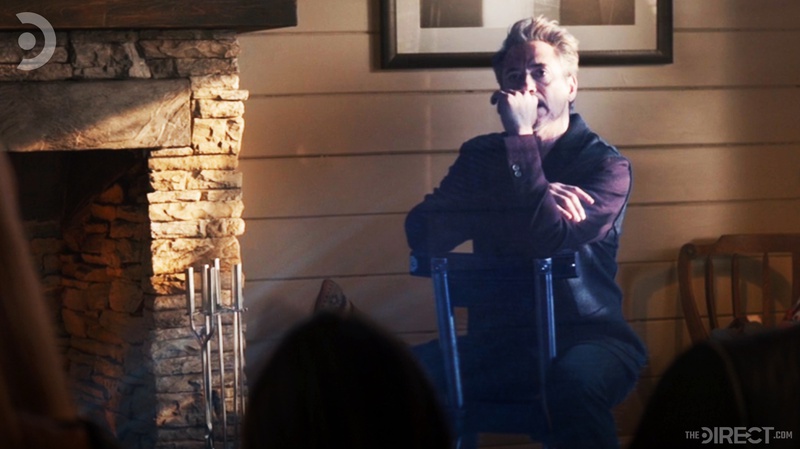
Throughout most of his time in the MCU, Tony Stark is often on-edge, constantly worrying about what will happen next and trying to prevent bad things from occurring. But the five years between the Snap and the Time Heist allow him to heal mentally and therefore operate in a clearer head space. Tony’s values haven’t changed all that much in that time period, but his approach to them has, and this allows him to gain closure on what he needs to.
This speech is recorded prior to the mission, but after his discussion with Pepper when she gives him her blessing to embark upon it and his reconciliation with the Avengers. Tony knows things aren’t going to be perfect even if they save everyone, but he’s made peace with his demons and is willing to face whatever may lie ahead, having faith that even if he doesn’t survive and no longer has a hand in the fate of the universe, things will still work out for the best somehow.
If you didn’t see your favorite Tony Stark quote here, check out our list of Inspirational Quotes from the MCU for more “pearls of wisdom” from our favorite man in a can.












